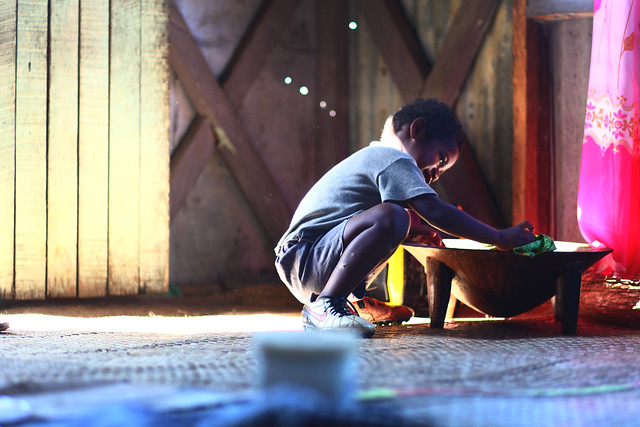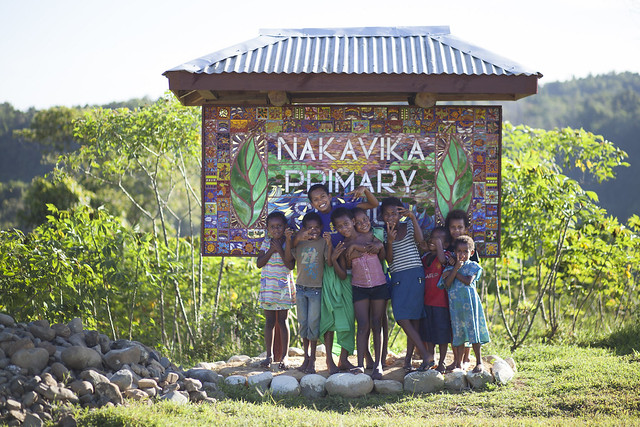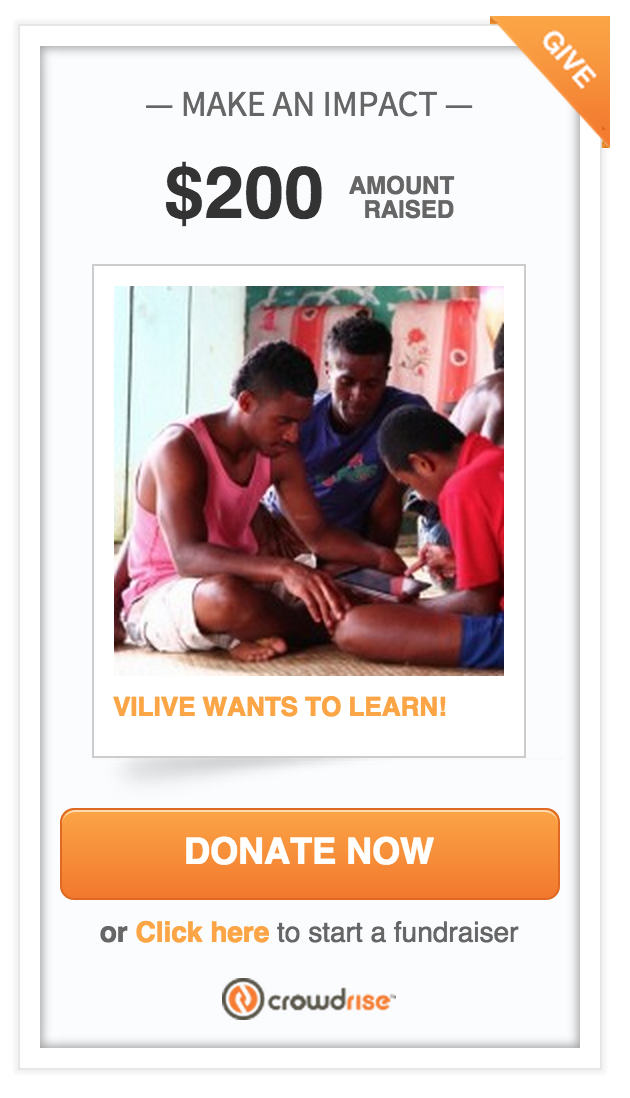Most of us start off isolated. Then we discover the thrills of adventure. We get slapped in the face by the lessons of exposure, and that leads to a rapid rethinking of everything our brains had already mapped. We like to think at this point that we evolve from a tourist to a traveler. There comes a call to act upon the lessons learned from exposure. Those actions are inspired by the purest motivations of and for humanity. This is when a traveler becomes an idealist. I venture to guess it happens to everyone who starts traveling in their teens and early 20s.
The idealist sets out to change the course of something they find unfair, and along the way, inevitably, the course sends the idealist sailing, flying, skidding, brutally falling flat on their face; a simultaneous injury to the understanding, ego, and soul that, overnight, can produce a cynic.
I never became a cynic about travel, but I certainly became a cynic about aid. After my two-month trip to Fiji, I started doubting the effectiveness of any outsider in a place of "need." In the realm of humanitarian work, I think I started everything off on the wrong foot.
What I did develop on that trip were strong connections amongst the kids, youth, and adults that only became clear upon returning five years later.
The foundation of my Nakavika roots
A sleeveless blouse decorates her maternal frame with pink, watercolored flowers. Upon every shift, she adjusts her sulu with the ease of a cat adjusting her tail. There's a searching in every glance for the needs of others, a radar that senses the desire for lemon leaf tea and biscuits. Rising to walk to the kitchen, the thick soles of her feet make deep scratches along the straw mats, sounds that beckon any small splinter to dare penetrate such strong skin. Her eyes are sandwiched by a smile and the dome of thick, soft hair of a Fijian woman.
I can't believe there was a time in Nakavika when I didn't know Vitalina. I am so glad her son Samu eventually did introduce us, and it was upon that meeting that I started planting real roots in the village.
When I returned this past November, I landed from the carrier into the open arms of Vitalina. Her family had a way about hospitality that made the "different" feel comfortable; they took the pressure off of being a guest. "Back at home, I don't think we offer a fraction of their hospitality to guests," I would ponder as I inhabited one of the three bedrooms in a home of seven people.
It's the whole Tuilawaki family, Vitalina and her kin, that makes me feel cared for in Nakavika. They are the foundation on which I believe that the village is my third community, along with Indiana and TGS. And "community" has been my buzz word for the last couple nomadic years, the concept into which I pour my focus and effort.
Where I left off
Returning to Nakavika gave me a chance to see what developed without support from the outside, especially since a big income-generating business left the area. The students had the same lack of confidence in their English skills. The youth group was still in the planning stage of the same Internet center. Vita's daughter wasn't in school for nursing, as was the plan when I left, and was instead living in Suva with a family friend, working to earn money for her entire family.
These weren't just my silent observations but points many people pulled me aside to make.
I didn't return to prove any points or re-start old projects, but with this renewed connection to the community and clear evidence of what happens without the desired help, I started thinking about responding to this call for action. Swallowing my worries about meddling/imposing/acting like a cultural imperialist, I looked at what I could feasibly accomplish on the village's wishlist.
I landed on fundraising (and some eventual web development when one group is ready).

What they're up against
Those of Nakavika have an idyllic life to the outsider, but they characterize their lives as a struggle, most of the time.
- They have their own free farm land and many crops that cost nothing to cultivate, but they are at the mercy of that season's weather and the produce market prices of a middle man.
- They get free education until secondary school, but for most farmers, tertiary school prices are impossible to pay.
- Loans aren't an option for those who don't have 2,000 FJD in the bank, and most village families can't accumulate that kind of savings with numerous mouths and minds at the table.
- There is a skills shortage in Fiji that calls for more students to complete their tertiary educations and join the work force. Without the funds, students end up abandoning desired careers to farm or snag the few entry jobs available for the high school graduate to pay for the rest of their family. Parents and their kids get stuck in this hole that they have the passion to dislodge from.
Vita and her husband Josateki want to be able to send their kids to the schools they want to (and have been granted acceptance to) attend, along with all the special experiences they are merited, such as a Boy Scout-sponsored trip to Japan. After hearing them explain their many income generators and the prices they face, it seemed pretty clear to me that there's almost no chance of affording it all unless they discover a lump of gold on the river bank.
The thing is: I know I could easily make these sums of money materialize through fundraising websites and/or just reaching into my own beer fund. We're talking $150 USD for university classes and $1,000 USD for a subsidized trip to Japan.
My first foray into fundraising
I did a little research upon leaving the Fijian Highlands and returning to Internet access. Currently, most crowd-funding websites only allow collectors from select Western nations (if I'm wrong, I happily look forward to receiving word of these other sites), so neither Vita nor any Fijian mother can fundraise online for her kid to get the education he needs to get a good job.
So I tried it for the first time, a fundraiser to support Vita's oldest son and the start of his university classes. Siteri provided the following description:
Vilive is a 19 year old boy raised up in the rural community where both of his parents are farmers and their main source of income is selling taro(dalo) in which they normally do their harvesting after every 3 months he is such a humble gentleman who loves to socialize with people,he is the second eldest of five siblings 3 younger brothers and one elder sister,he loves to play rugby,he was chosen as a head boarder from his last year school,he is such a dedicated worker and love to help his parents out in the farm after every school break.He will be studying one units(English) in this semester which is for 3 months then he will be doing trade diploma in computing,He loves to share his knowledge with other people regarding the advantage and disadvantage of computers and internet especially the people from his village where some don't even know what is internet and it's benefit Vilive want to further his studies therefore on his behalf am seeking his help if you can help with funding of his education. I hope that this will be taken into your consideration and your concern will be highly appreciated.
The fundraiser surpassed its goal in a few hours, and Siteri had money in hand via Western Union within the week.
Hi, Thank you so much for your great help I manage to pick it up this morning couldn't hold back my tears thank you Lindsay and to each and every hand who contribute thanks for the great help it means a lot to my brother...thank you I will pay his fees this afternoon and will email you the receipt later.
Thanks, Siteri
It was thrilling to see how quickly my other communities responded to this need, and it gave me hope for this method of aid. Stories resonate, and education is prioritized by so many. Now, the ball lies in Vilive's court, and I look forward to updates from him, Siteri, and Vita about his academic progress and how his success becomes his family's and village's success.
More to come
Sometimes I blame my zodiac sign for my constant weighing of opinions to the point of inaction, but when it comes to whether I do charitable things or not, I've sadly been leaning towards the "no" side for five years. When I stepped back into Nakavika in November, it was so apparent I didn't need to feel half as bad as I have been all this time, but, like emotional rehab, I did need to rebuild my altruistic muscles.
I don't deserve the great number of opportunities that I have been afforded, and when I think about paying it forward, I first look to lift up "my community," which for me includes the places I've spent substantial time living in and becoming a part of. Nakavika has been so hospitable and inclusive that I forget the incredible distance between this village and my hometown. I want to contribute to the continued development of this paradise that has a strong desire to develop while maintaining the traditions it values.

I want to, again, thank those who donated to the education of Vilive, as well as to those of you who read what I tried very hard to explain honestly and without inflicting guilt or implying judgment.
I hope to conduct more fundraisers for the students of Nakavika, to help connect more eager learners to the education they seek and further empower their community. I'm not sure if individual crowd-fundraisers is the best way to go in the long run, but at least in the meantime, people are moving forward.

